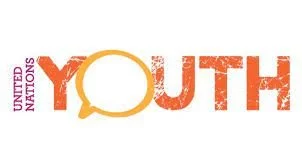Africa as a region has the highest percentage of youth in the world, with an estimated 420 million youth aged 15 to 35 (AfDB, 2018), and its share of rural youth is projected to rise to 37 percent by 2050 (IFAD, 2019a). Young people as producers and traders of food, as workers, innovators, and entrepreneurs, and as policy actors are already playing an important role in agrifood systems. Given the appropriate support and enabling environment, they can take advantage of new opportunities, develop innovative solutions, and contribute to building sustainable and resilient agrifood systems.
What's Next? | Claiming the Democratic Future
The young believers of democracy are responding to the democratic erosions by demonstrating their democratic ambitions and transforming political spaces through innovation, localized and intersectional approaches, arts, and digital media. Discontent with traditional political institutions has encouraged young people to create innovative and alternative spaces of political engagement. Thus, young people are at a critical juncture in reversing the anti-democratic trends, but the lack of a global youth campaign is a lost opportunity to capitalize on youth innovation to strengthen democracy.
Enhancing Youth Political Participation Throughout The Electoral Cycle
Young people between the ages of 15 and 25 constitute a fifth of the world’s population. While they are often involved in informal, politically relevant processes, such as activism or civic engagement, they are not formally represented in national political institutions such as parliaments and many of them do not participate in elections. This can impact on the quality of democratic governance. The inclusion of youth in formal politics is important, as the 2011/2012 Arab States popular uprisings and various Occupy movements have demonstrated. In countries in transition, fresh ideas and new leadership can help to overcome authoritarian practices. Where youth-led protests have forced authoritarian regimes from power, significant frustration is likely to arise if youth are not included in new formal decision-making. This can destabilize democratization and accelerate conflict dynamics.
Engaging Young People In Open Government | A Communication Guide
Open government strategies and initiatives aim to support democracy and inclusive growth. They are an important tool to increase transparency, accountability, and integrity, whilst building stronger relationships between government and citizens allowing them to participate in policy-making. As the OECD Recommendation of the Council on Open Government underlines, open government, and stakeholder participation initiatives should include specific efforts “dedicated to reaching out to the most relevant, vulnerable, underrepresented, or marginalized groups in society”. Although youth are a highly heterogeneous group with different backgrounds, skills, and capacities, they often find it more difficult than other segments of society to make their voices heard. Youth can be considered as one of the groups that requires specific efforts.
Youth Candidacy in Nigeria’s 2023 Elections
In the 2023 general elections in Nigeria, the Independent National Electoral Commission (INEC) will conduct elections in 176,846 polling units for elections into the office of the President, Governors, National Assembly, and State House of Assembly seats. Eighteen political parties nominated a total of 15,336 candidates for the one Presidential, 28 governorship elections, 469 legislative seats in the National Assembly, and 993 legislative seats in the State Houses of Assembly. According to the African Youth Charter, youths are classified as persons between the ages of 18 – and 35 years. The National Youth Policy defines 15 – 29 as the youth age bracket for Nigeria.
Youth, Political Participation And Decision-Making
They can be a creative force, a dynamic source of innovations, and they have undoubtedly, throughout history, participated, contributed, and even catalyzed important changes in political systems, power-sharing dynamics, and economic opportunities. However, youth also face poverty, barriers to education, multiple forms of discrimination, and limited employment prospects and opportunities.
Digital Civic Engagement By Young People | Rapid Analysis
Many of today’s youth take to digital spaces to develop their civic identities and express political stances in creative ways, claiming agency that may not be afforded to them in traditional civic spaces. The key difference between civic engagement by youth today and older, more traditional forms of action is the availability of digital technology, which provides a low-barrier-to-entry canvas for young people to create content that is potentially vastly scalable.
Civic Participation Of Youth In A Digital World | Rapid Analysis
This rapid analysis aims to understand how young civic actors in the Europe and Central Asia (ECA)1 region use digital tools for political and social participation, the topics that they are motivated by, and the opportunities and obstacles they encounter in their digital activism. The goal of the analysis is to serve as a conversation opener and to lead to more in-depth research and dialogue between stakeholders interested in advancing digital youth activism and civic engagement.
Promoting Entrepreneurship Among African Youth
Acknowledging the importance of investing in and creating space and opportunities for young people for them to realize their full potential, The Youth Cafe has proposed several initiatives geared towards youth empowerment. The AU Agenda 2063 recognises the need to do this as a prerequisite for achieving the socio-economic transformation of Africa. This initiative is aimed at reaching millions of youth from across the continent with opportunities and interventions in key areas of employment, entrepreneurship, education and engagement.
Promoting A Better Food Future | World Food Forum
Over the past years, there has been an explosion of interest in the role of youth in food and agriculture systems. Youth have seized this opportunity, and many diverse youth groups have published political position statements on a variety of global food and agricultural governance topics. This compendium aims to analytically summarize youth calls to action in 2020 and 2021 around food and agricultural systems topics.








